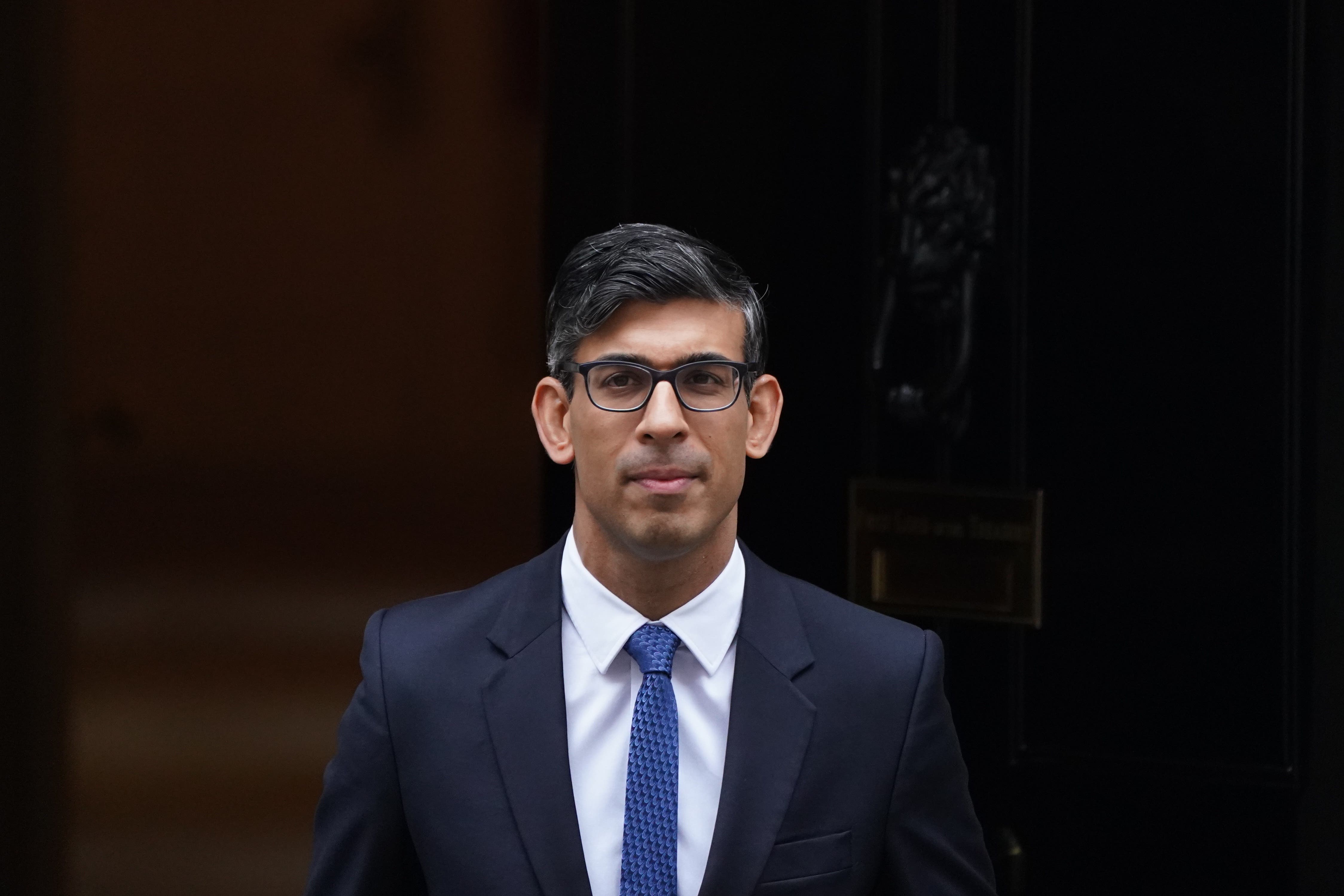Rishi Sunak’s ‘narrow path’ to winning the next election
Cabinet ministers at today’s Chequers awayday must be tempted to contemplate the end of Conservative rule, writes John Rentoul


The time has come for me to assess my prediction that Rishi Sunak would win the next general election. It is what superforecasters do, according to Professor Philip Tetlock, who invented the concept. They constantly revisit and revise their assumptions.
Since I made my forecast six weeks ago, events seem to have conspired against the prime minister, and the prime minister himself has failed to rise as confidently above them as he did when he was first tested as the coronavirus chancellor. The most important things to have gone wrong are the NHS and public sector strikes. In early December, I assumed that the nurses dispute would be over by Christmas. It seemed obvious that the money would be found to pick off the most popular group of workers, who just happen to be critical to solving the NHS’s problems.
It didn’t happen, and I hear the rumble of suggestions that relations between Jeremy Hunt, the chancellor, and Steve Barclay, the health secretary, are in a bad way. But if Hunt is holding to an excessively hard line on the money, it can only be because Sunak agrees with him, in which case it is the prime minister’s judgement that must be questioned.
When things are going in the wrong direction on an issue that is now in most opinion polls named as the most serious problem facing the country – the NHS – all the usual chaff of daily headlines becomes harder to fight off. Sunak’s fine for not wearing a seatbelt and Nadhim Zahawi’s tax penalty – which are not among what ministers call “the people’s priorities” – become more damaging.
And yet the underlying trends of politics over the next 18 months have not changed much. Sunak’s five promises, announced on New Year’s Day and reviewed at the cabinet seminar at Chequers, the prime minister’s country house, today, were a way of reminding the Conservative Party of what they are.
Inflation will fall. The economy will grow (at least a little). Government borrowing will stabilise. NHS waiting lists will fall, as winter turns to summer. The only promise that cannot be relied on so readily is the one to stop the small boats.
By the end of this year, though, it is likely that all the other indicators will be moving in the right direction. The NHS is the difficult one, because this winter’s crisis has been more serious than expected, and waiting lists will rise again next winter. But there is some evidence, in a survey carried out by The Economist, that similar problems affect all the health services in Europe, and that the after-effects of the pandemic are the common factor. If so, and if there isn’t a fundamental problem with Britain’s unique model of healthcare, then the NHS may not be in a death spiral after all.
None of which means that Sunak and the Conservative Party would necessarily gain any credit for improvements in the indicators that people care about. Sunak must be haunted by the history of John Major’s government, which he observed as a sixth-former becoming interested in politics, which enjoyed what was called the voteless recovery in the years before the 1997 election. The electorate had gone off the Tory party, and stayed off it.
On the other hand, other fundamental factors are arrayed, if not in Sunak’s favour, then at least against the opposition. Keir Starmer in an interview with The Spectator today tried to repeat the “no complacency” line but mangled it, saying, “We haven’t won anything yet,” which sounded at least semi-complacent. He knows that the electoral geography is far worse for Labour than it was in 1997: the party starts from a lower base, has lost Scotland, and is piling up votes in safe liberal Remainer seats where it doesn’t need them.
Whatever anyone thinks of the chances of a Conservative majority at the next election, my view is that it is more likely than a Labour one. Sunak’s recent problems may have increased the likelihood of a hung parliament rather than a Tory majority, which would probably mean Starmer as prime minister. But my view remains that a Conservative victory is underpriced in the current market.
Isaac Levido, the organiser of the 2019 win, is said to be presenting cabinet ministers today with his plan for a “narrow path” to victory, which seems to consist of keeping the five promises and not fighting each other.
It is not wholly convincing, but Sunak should just remember September. He spent much of it, having lost the leadership election to someone who was subsequently beaten by a lettuce, with his family at his home in Yorkshire, contemplating the ruin of his ambition. But he was surprisingly cheerful, telling friends that he would not be standing down as an MP, because you have to be in the Commons if you want to win; a few weeks later he was prime minister.
If he wins the next election, stranger things will already have happened to him.






Join our commenting forum
Join thought-provoking conversations, follow other Independent readers and see their replies
Comments